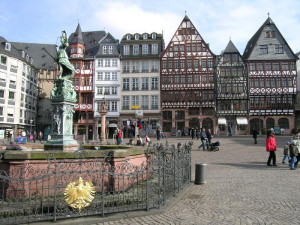Pharmaceutical firms need $40m

Paidamoyo Chipunza and Rejoice Makurira—
Zimbabwe is importing salted water, commonly known as “drips”, amid reports that local pharmaceutical companies require $40 million to revive and operate at full throttle.
Commenting on the state of the pharmaceutical industry during a visit to Caps Pharmaceuticals by Health and Child Care Minister Dr David Parirenyatwa yesterday, Natpharm chief executive officer Mrs Flora Sifeku said all private and public institutions were importing IV fluids.
Mrs Sifeku said while Natpharm considered local companies to supply medicines and sundries, no company was manufacturing IV fluids. “The last time we had an order from National aids Council to procure IV fluids for hospitals, we had to import from India, yet IV fluids are just water and salt,” she said.
Caps chief executive officer Mr Justice Majaka said with enough financial resources, the company had the capacity to manufacture up to 2,5 million IV fluids a year.
He, however, said Caps was unable to manufacture even a single “drip” at the moment because its plant responsible for that function was not working.
“The plant requires at least $1 million for refurbishment and procurement of raw materials for it to start functioning again,” said Mr Majaka.
He said out of its four manufacturing plants, only the main plant was functioning.
The other two plants can manufacture small injections and liquids such as penicillin.
Mr Majaka said for all its plants to function at full throttle, it required about $6 million.
“Our challenge in sustaining our viability was that our major customer, which was Government was no longer funded for it to procure medicines from us and individual institutions were also getting finished products from the donor community,” said Mr Majaka.
He, however, said since Government assumed ownership of the company, $500 000 was injected into the firm and signs of revival where already showing.
“While we are still operating below five percent, we are confident that our future is positive considering that we have managed to break even our operational costs versus our profit,” said Mr Majaka.
He said the country should look forward to seeing some of their products back on the counter including medicines such as medox, fluemel and Mr Strong starting from Monday.
With enough funding, Mr Majaka said Caps had a capacity to produce 7,2 million bottles of liquid medicines, one billion tablets and 6,5 million small injections each year.
United Nations Industrial Development Organisation project coordinator for the pharmaceutical division Mr Ishe Nkomo said local pharmaceutical industry required up to $40 million to revitalise all its eight manufacturing companies in the country.
He said there was need to find ways of mobilising these resources to guarantee improvement of generic drug manufacturing.
Speaking after the tour of the Caps plant, Dr Parirenyatwa described the current scenario in the local pharmaceutical manufacturing industry as a shame.
He said there was need to work with the industry to ensure that they were capacitated to manufacture all the medicines that could be manufactured locally.
“We can begin the process with the expert team that we have on the ground and our own regulatory board to ensure that everything done is safe and that they are putting the products onto market, not just local market, but regional as well.
“So we are pleased that Government can continue to invest into Caps and other local manufacturing enterprises in the country and we should be able to be self sufficient or be able to export to some countries in our region,” said Dr Parirenyatwa.
He said current scenario in the manufacturing industry was a shame considering that local institutions had the capacity to manufacture some of the medicines that were in short supply locally.
“It is extremely painful when you see the capacity that is in this plant, some of the drugs that are actually in shortage can be manufactured here,” said Dr Parirenyatwa.
Dr Parirenyatwa said while it was pleasing that Caps could now manufacture some of the non-prescriptive drugs, Government was looking forward to seeing it manufacturing even the prescriptive drugs.
“The country is experiencing shortages of drugs and what Caps is doing is the right step in solving these challenges.
“Let’s manufacture here, let’s encourage them, and let the Government invest more,” said Dr Parirenyatwa.
Government is now the major shareholder for Caps with 80 percent shareholding.









Comments